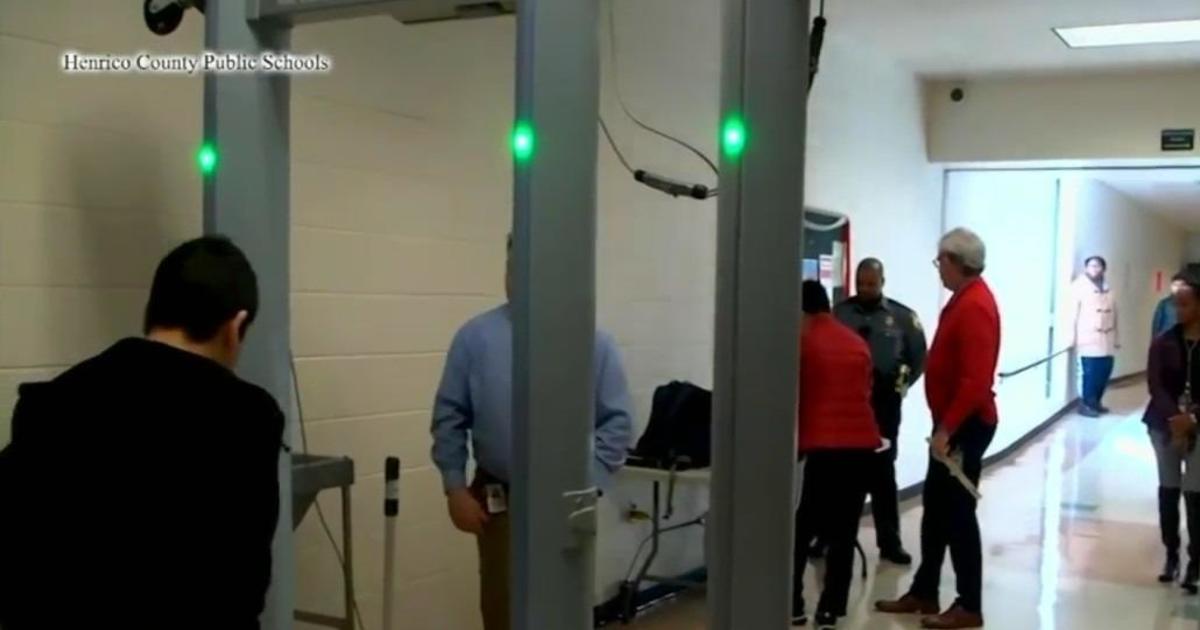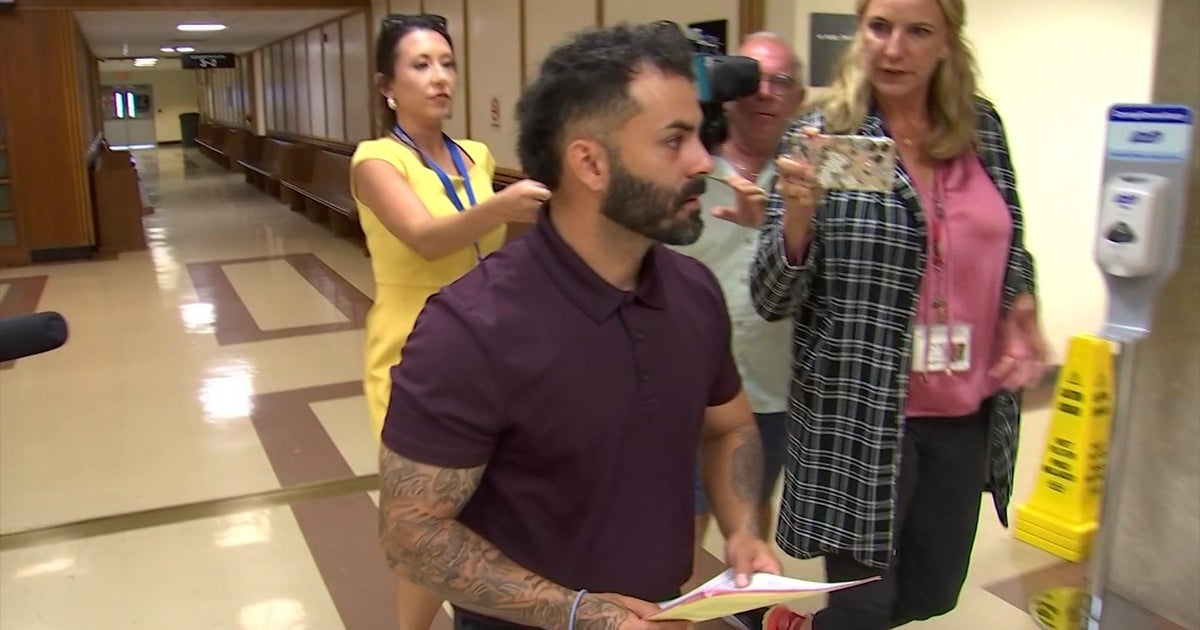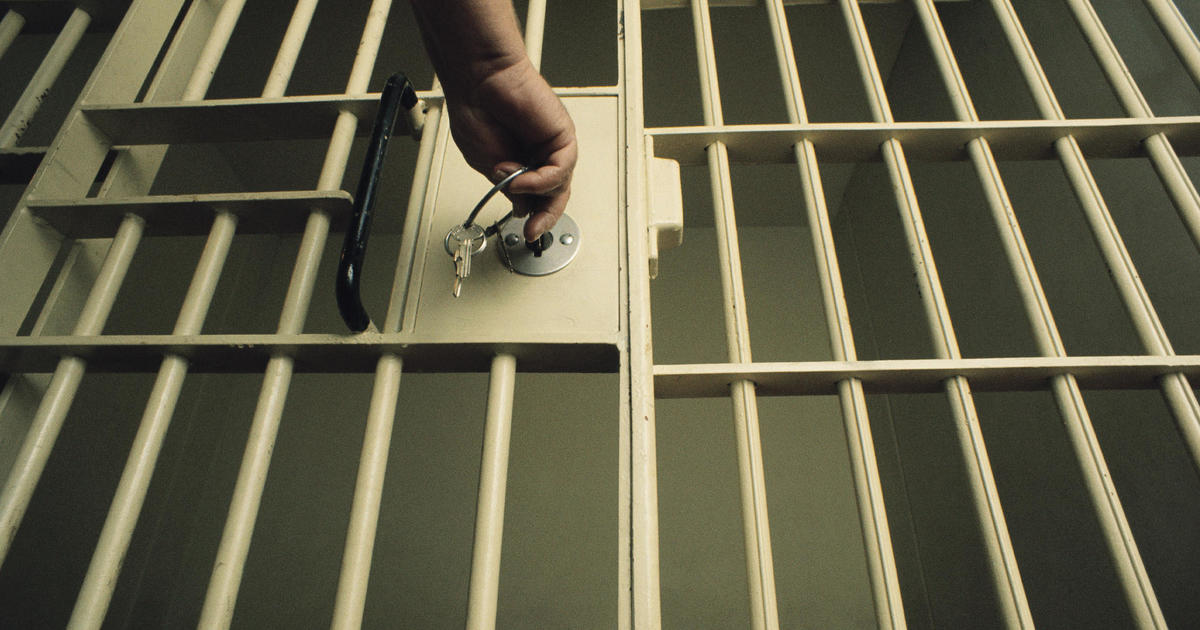Broward Wants To Stem Flow In "School To Prison Pipeline"
FT. LAUDERDALE (CBSMiami/AP) –In an effort to cut down on the number of students arrested for petty crimes like loitering and disrupting class, Broward County's school district has reached a deal with law enforcement and the NAACP for an alternative to the zero-tolerance policies prevalent in many schools.
It charges principals rather than school resource officers with being the primary decision makers in responding to student misbehavior.
The move is designed to cut down on what has become known as the "school-to-prison pipeline."
Broward, the nation's seventh largest district, had the highest number of school-related arrests in Florida in the 2011-2012 school year, according to state data. Seventy-one percent of the 1,062 arrests made were for misdemeanor offenses.
In this South Florida district and others across the country, minority students have been disproportionately arrested, sometimes for the same offenses their white peers received only a warning for. Nationwide, over 70 percent of students involved in school-related arrests or law enforcement referrals are black or Hispanic, according to U.S. Department of Education data.
"It is a shame if you throw an M&M at someone they arrest you and take you to court," said Kim Keenan who attended a separate ceremony on Tuesday to mark the historic event.
"Silly behavior is not criminal behavior and we have led an effort to make sure the administrators have taken control of the schools rather than law enforcement," said Marsha Ellison president of the Broward Chapter of the NAACP.
The new policy creates a matrix for district officials and school resource officers to follow when a student misbehaves. For non-violent misdemeanors like trespassing, harassment, incidents related to alcohol, possession of a misdemeanor amount of marijuana and drug paraphernalia, administrators are instructed to try to resolve the situation without an arrest. A variety of alternatives, like participation in a week-long counseling program, are designed to address and correct the student's behavior.
No student would be arrested for a first non-violent misdemeanor, but further offenses will result in graduated levels of school-based interventions. After a fifth incident, students are referred to law enforcement.
Felonies or serious threats will still be handled by police.
The policy went into effect at the beginning of the current school year, and Broward Superintendent Robert Runcie said the district has already seen a 41 percent decline in the number of school-related arrests.
Runcie became superintendent two years ago, and said one of the first things he did was look at student achievement and outcomes. One of the data sets that stood out to him the most showed black male students in particular falling behind academically. When he dove further into the data, he found the same group was misrepresented in terms of expulsions and arrests.
"One other thing I heard quite a bit about was students being arrested for things that I would never have believed constituted an arrest," Runcie said. "For example, tardiness. Trespassing. Throwing spit balls. Things that you just, using a common sense approach, would say, we wouldn't want to do this to a child because once you get a record, it basically stays with you for your life."
Runcie worked with the NAACP to create a new student code of conduct. The NAACP said they had attempted to address student discipline with two previous superintendents, without any success.
The NAACP said they hope the policy will serve as a model for other districts nationwide.
Speaking at a signing ceremony at the Broward School District on Tuesday, Broward Juvenile Justice Judge Elijah Williams said, "We already bought the ticket. We are waiting for our numbers to come in. We know we have hit the jackpot when our school related arrests go down, down down."
"It costs $50,000 a year to keep a kid in jail $4800 dollars to keep a kid in school. Our kids need to be in school not jail," added Broward Sheriff Scott Israel.
Stakeholders in the juvenile justice system accompanied students who are now in a diversion program to the stage at the Broward School Board.
Ninth grader Ashante Antenor says she was expelled after bringing a taser to school because she was afraid of being bullied. She is now in the Promise program and says it has made all the difference in her life.
"I was angry but it's taught me to think about what I do. It helps calm me down, said Antentor.
The U.S. Justice Department and the Department of Education's Office of Civil Rights have addressed the issue in individual school districts. In Mississippi, a federal judge has scheduled a December 2014 trial for a Justice Department lawsuit that claims there is a "school-to-prison pipeline" in part of the state that locks up students for minor infractions like flatulence or vulgar language.
(TM and © Copyright 2013 CBS Radio Inc. and its relevant subsidiaries. CBS RADIO and EYE Logo TM and Copyright 2013 CBS Broadcasting Inc. Used under license. All Rights Reserved. This material may not be published, broadcast, rewritten, or redistributed. The Associated Press contributed to this report.)



